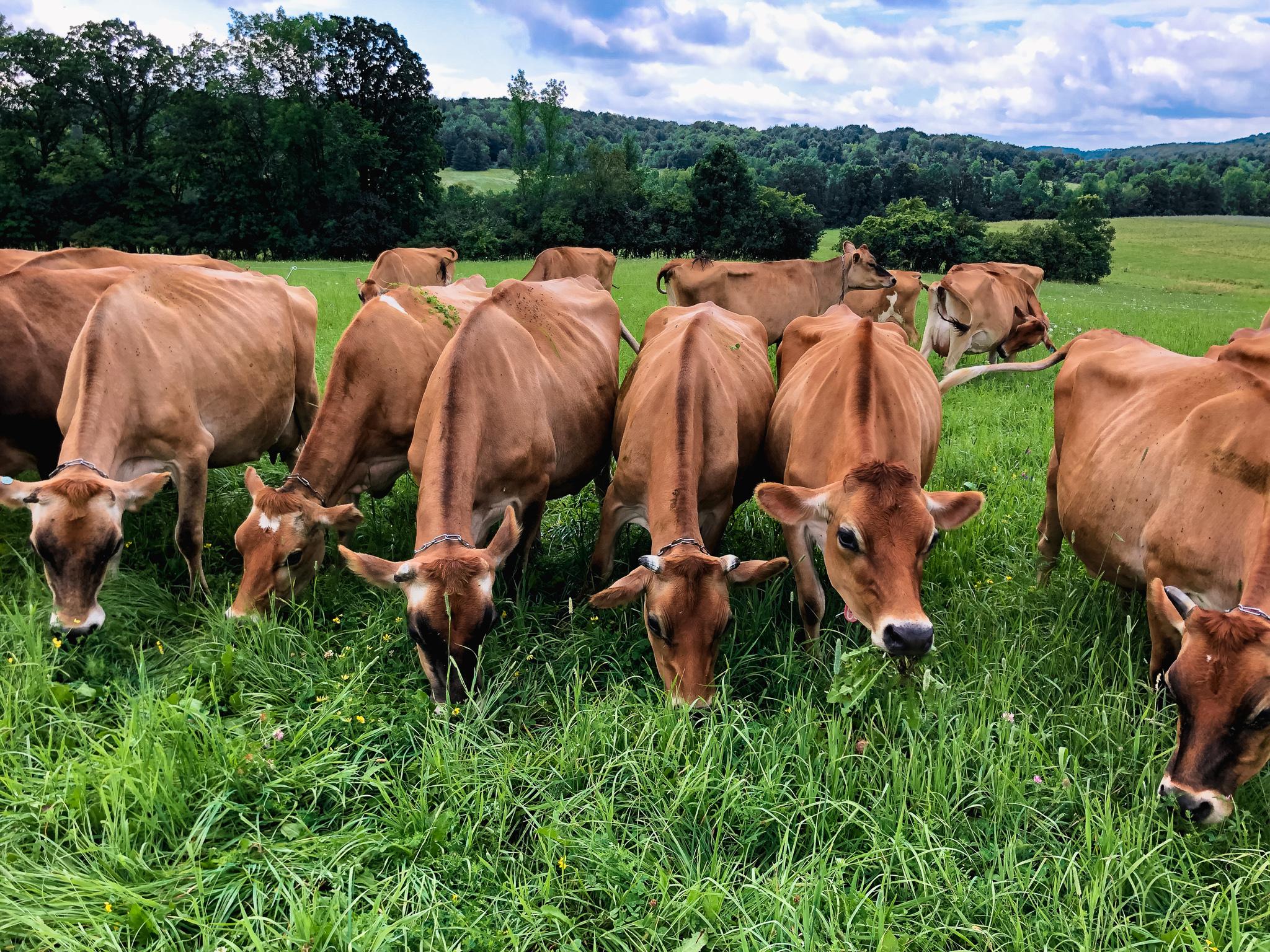
The Organic Livestock and Poultry Standards (OLPS) rule recently put out by USDA for public comment is based upon more than a decade of widespread debate and support from the organic community to update organic standards to include critical animal welfare provisions. The OLPS rule clarifies production standards regarding living conditions and outdoor access for organic livestock and poultry species to support consistent enforcement and assure consumers that USDA-certified organic livestock products meet a robust and uniform standard that ensures both environmental and animal welfare. The proposed rule:
- Clarifies living conditions, healthcare, transportation and slaughter practices to support animal welfare for mammalian livestock species.
- Establishes indoor and outdoor stocking density limits (i.e. space requirements) for poultry, and clarifies that enclosed porches are not considered outdoor space.
How (and Why) to Take Action
Current USDA organic standards for poultry and livestock already require outdoor access and appropriate living conditions that allow animals to express their natural instincts and behaviors. The majority of organic livestock farmers uphold these standards; however, the regulations have not been consistently enforced and some certifiers have allowed large poultry companies to use narrow, enclosed second-story porches in place of true outdoor access. This inequitable enforcement and interpretation has created an unfair playing field for organic livestock farmers and has undermined consumers' confidence in the organic label. The OLPS clarifies the standards for animal living conditions to require true outdoor access, allow animals to express natural instincts, and improve animal well-being across all organic operations.
We are urging USDA to implement the OLPS as quickly as possible with strong language that ensures meaningful access to the outdoors and promotes animals' ability to engage in natural behaviors.
You can help improve organic integrity by supporting strong rules for animal welfare! Here's how:
- Review NOFA-VT and VOF's suggested talking points below. You can find the full proposed rule here.
- Go to the comment form. You can write directly in the space provided, cut and paste your comments, or attach a separate document.
- Be as personal as you can! Please feel free to use our talking points in total or as a guide, but sharing your own specific perspective always has the greatest impact.
If you are an organic livestock producer or organic business please be sure to mention your stake in this rulemaking.
If you are a consumer, let them know you’re willing to pay more for organic eggs and poultry that meet a higher animal welfare standard. Comments from organic consumers are equally important, especially if you tell regulators why you care.
Suggested Talking Points
Swift Implementation
USDA has proposed two possible implementation periods (5 years vs 15 years) for certified egg-producing operations to meet the outdoor space requirements for laying hens.
- In your comments, tell USDA to set a more aggressive implementation time of 3 years and let them know that the 15-year implementation option is not acceptable.
- The majority of egg and livestock producers are already meeting the requirements laid out by the proposed rule. Failing to enact livestock updates in a short timeframe extends the harm done to these producers and gives unfair advantage to industrialized production.
Meaningful Outdoor Access
In order for this rule to close loopholes regarding outdoor access and align USDA organic standards with consumer expectations that organic birds are raised on pasture, the rule must include the following:
- A clear definition of "soil" (as currently included in the proposed rule) that clarifies birds must be raised on well managed-pasture.
- Provisions to ensure poultry have easy access to outdoor/soil-based areas (i.e. readily accessible exit doors in poultry houses and a short distance from those exits to reach pasture).
- Prevent continuous confinement based on outdoor temperatures. (As written, the proposed rule would allow "temporary confinement" when temperatures are below 40 degrees, creating a possible loophole for large operations. We are recommending no temporary confinement when temperatures are above 32 degrees.)
- Clarification that hoop structures can be used as outdoor access where they can provide shade, comfort, and access to pasture.
Ability to Express Natural Behaviors
The organic regulations already require organic producers to raise livestock in a way that allows them to engage in natural behaviors. To ensure more consistent interpretation of that requirement, OLPS should specify that:
- Artificial light should be used only to mimic daylight and encourage natural behaviors, and not to manipulate weight gain or laying habits.
- Enticement (feed, water, shade, etc.) should be provided to encourage consistent use of outdoor areas.
What's at Stake?
Health and competitiveness of family farms – Inconsistent animal welfare standards for organic chickens create an unlevel playing field for organic farmers already providing true outdoor access.
Advancement of organic animal welfare – 75% of Americans are either very or somewhat concerned about the treatment of animals by the meat and dairy industry.
Consumer trust and integrity of the organic label – 89% of Americans say the USDA should periodically review and update the organic standards to keep pace with new science and consumer expectations.

